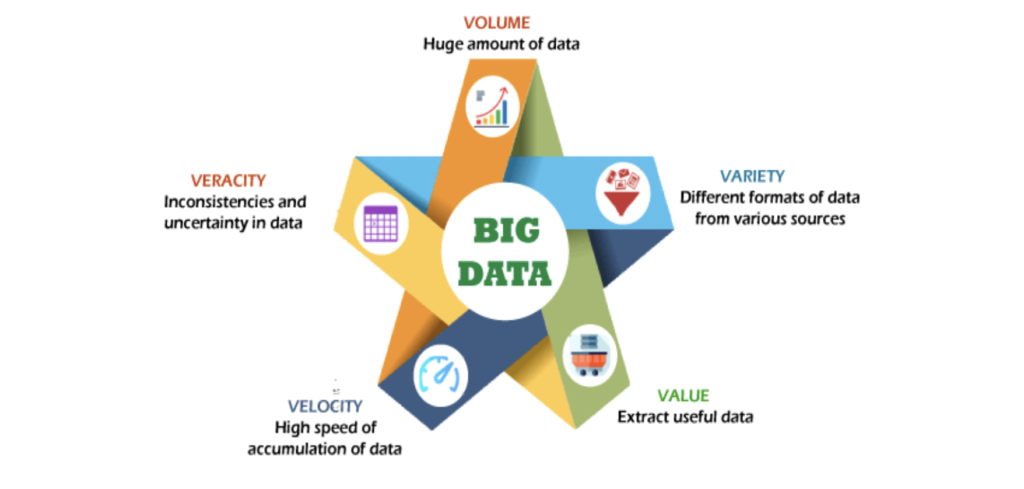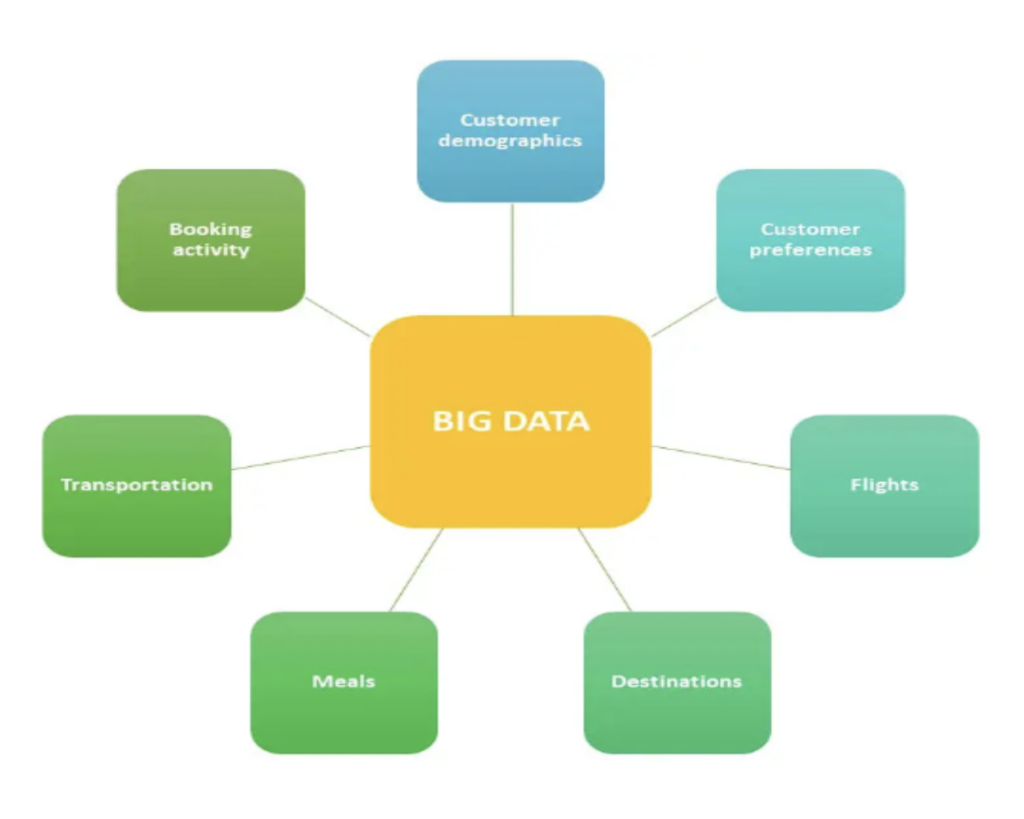After a long time, everyone is enjoying their newly found freedom and celebrating by packing their bags for the next dream cation. International traffic in 2022 climbed 152.7% versus 2021 and reached 62.2% of 2019 levels as per IATA. So the whole world has hit the road or is making plans for it.
This promises to open up a world of opportunity for the travel sector, but before we become irrationally exuberant, we must first ask ourselves – Is my business ready to make the most of this boom? How do I get the right travellers, to go to the right places, with the right transportation and stay options, at the right costs?
We have traditionally done this manually, but in an increasingly complex world, we need the power of computing to enhance our capabilities and give us the edge. Big data is the perfect travel companion that the industry is talking about to take their revenues to levels that have no boundaries.
What is Big Data

Pc – Shatabd Kaushik on Quora
Big data is the analysis of large amounts of data which comes from different sources, has a high speed of change and may have certain inconsistencies. The result of the analysis brings out useful information that can be actioned to yield better results.
Big Data in the Tourism Industry

PC – Optimizely
We all intuitively know that the Tourism industry is the perfect example of big data. There are a huge number of destinations, each with its own pros and cons, multiple ways of transportation, different accommodation options, and myriad tastes in food and personal preferences.
On the other hand, people are constantly searching for the best price offers and payment plans before they finalize their plans. With Instagram and Facebook, they are also well-educated about their options and have very particular requirements that are often based on the experiences of others.
All of this generates a lot of data that needs to be organized and understood. Many times it is hard to figure out what to do with all this information. But with sophisticated computers, this data is arranged in a smart way and helps to extract valuable insights on what people need and how this can be matched to the best options available in the market.
Big data uses both historical & real-time data to better understand travel habits. Artificial intelligence and machine learning are used to further fine-tune the process. This data is stored and the information collected is presented in a structured manner whenever needed.
Benefits of Big Data in For The Travel Industry
Accurate Demand Forecasting: Tools can be used to anticipate customer demands more accurately based on holidays, festivals, weather conditions & local events. They study past patterns and help in better prediction of demand trends. They give insights into the changing demand for destinations & hotels through travel searches made by people on search engines.
Such information, combined with client surveys and also using trends from social media platforms helps businesses understand changing customer preferences. This in turn helps them make better marketing decisions.
Optimize Prices, Costs & Predict Revenues: Pricing is one of the most dynamic aspects of the travel industry. Big data can play a major role in ensuring optimal profitability. By analyzing the data inputs of cost structures, marketing strategies, demand & distribution it provides pricing strategies that help improve utilization and reduce variability. This ensures that evidence-based decisions are taken in these sensitive areas leading to higher conversion rates at a lower cost.
Reputation Improvement: This is a crucial aspect in today’s world where almost everyone is eager to leave their opinion about any service on social networks, review sites & search engines. Big data trawl through the internet to understand the sentiment of people, flags negative content and gives constant updates on aspects that are doing well and those that need improvement. This then can feed into the marketing strategies to highlight the strengths and give insights on how to address the weaknesses.
Save time & simplify processes: New deals, offers & live inventory can easily be shared across the network in real-time. This automates & optimizes the enquiry & booking processes. Effective seasonal marketing & optimizing long-term forecasts are also possible with the help of big data.
So, in the world of Big Data, we are increasingly going to see more efficient decisions, made much faster, leading to better outcomes for both the industry as well as the customers.
As W. Edwards Deming said – “In God we Trust. All others must bring Data”







Your point of view caught my eye and was very interesting. Thanks. I have a question for you.
escrow pharmacy canada
https://expresscanadapharm.shop/# Express Canada Pharm
canadian pharmacy ed medications
Your article helped me a lot, is there any more related content? Thanks!
Their health and beauty section is fantastic.
where to buy cytotec for sale
Their global health initiatives are game-changers.
A true asset to our neighborhood.
lisinopril 40 mg generic
I’m impressed with their commitment to customer care.
A gem in our community.
get cheap clomid tablets
Their loyalty program offers great deals.
Cautions.
cytotec pills in kuwait
Always my first choice for international pharmaceutical needs.
Your point of view caught my eye and was very interesting. Thanks. I have a question for you.